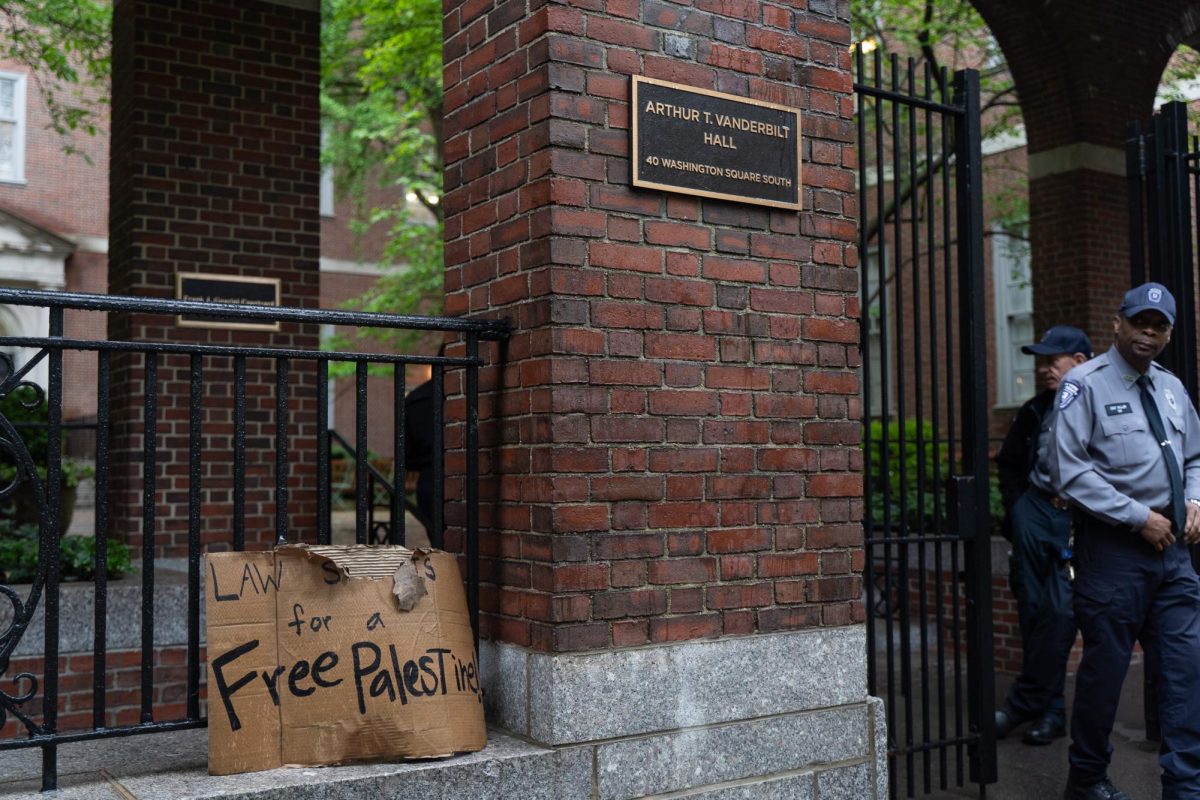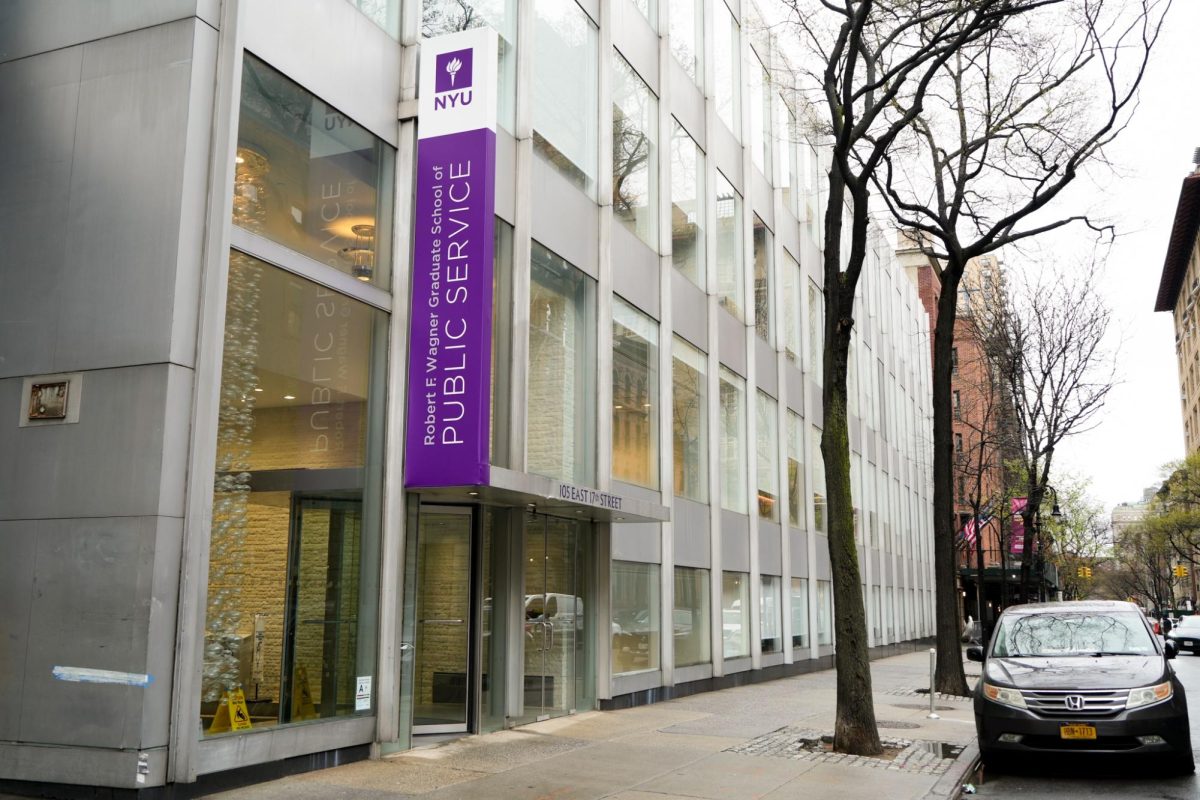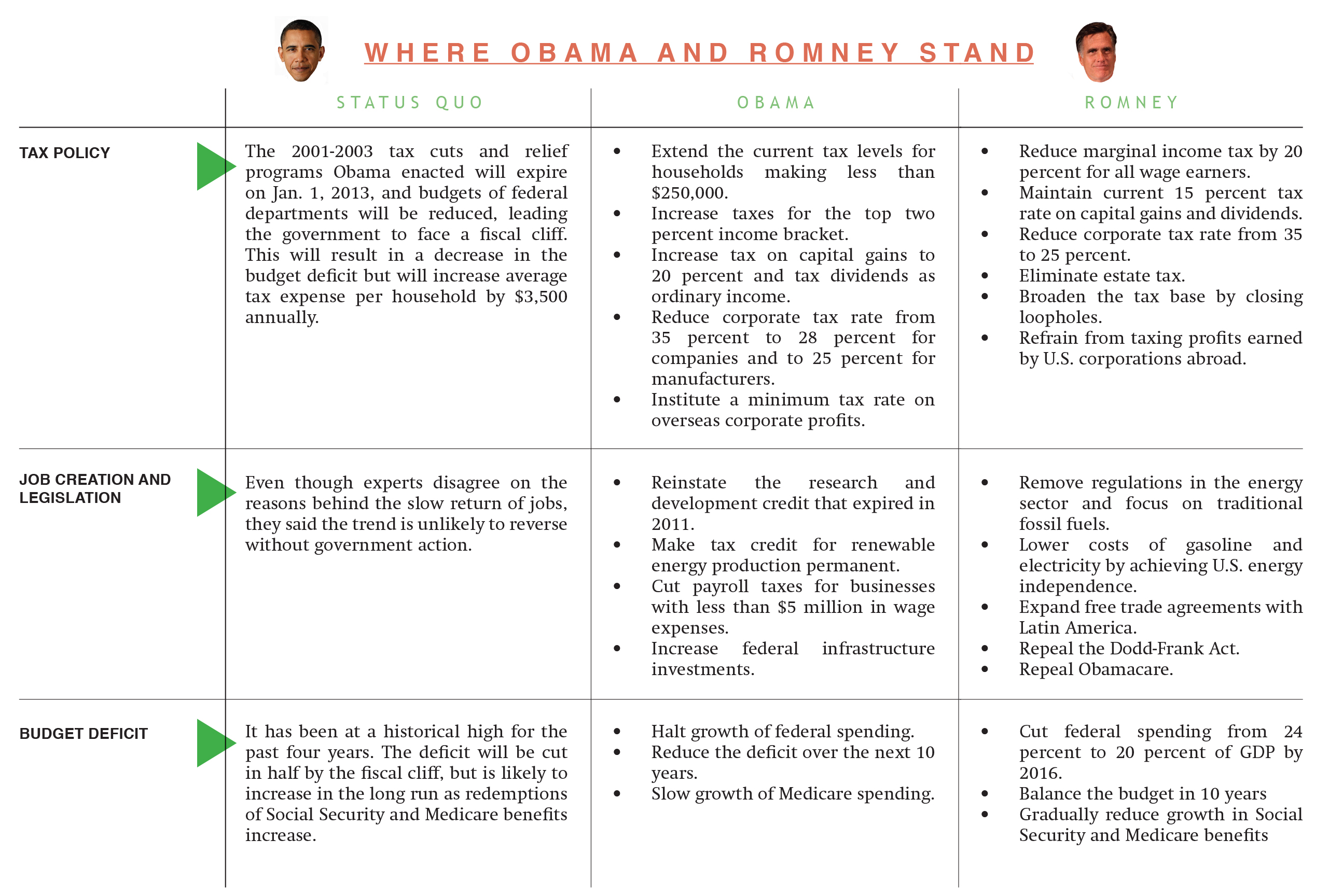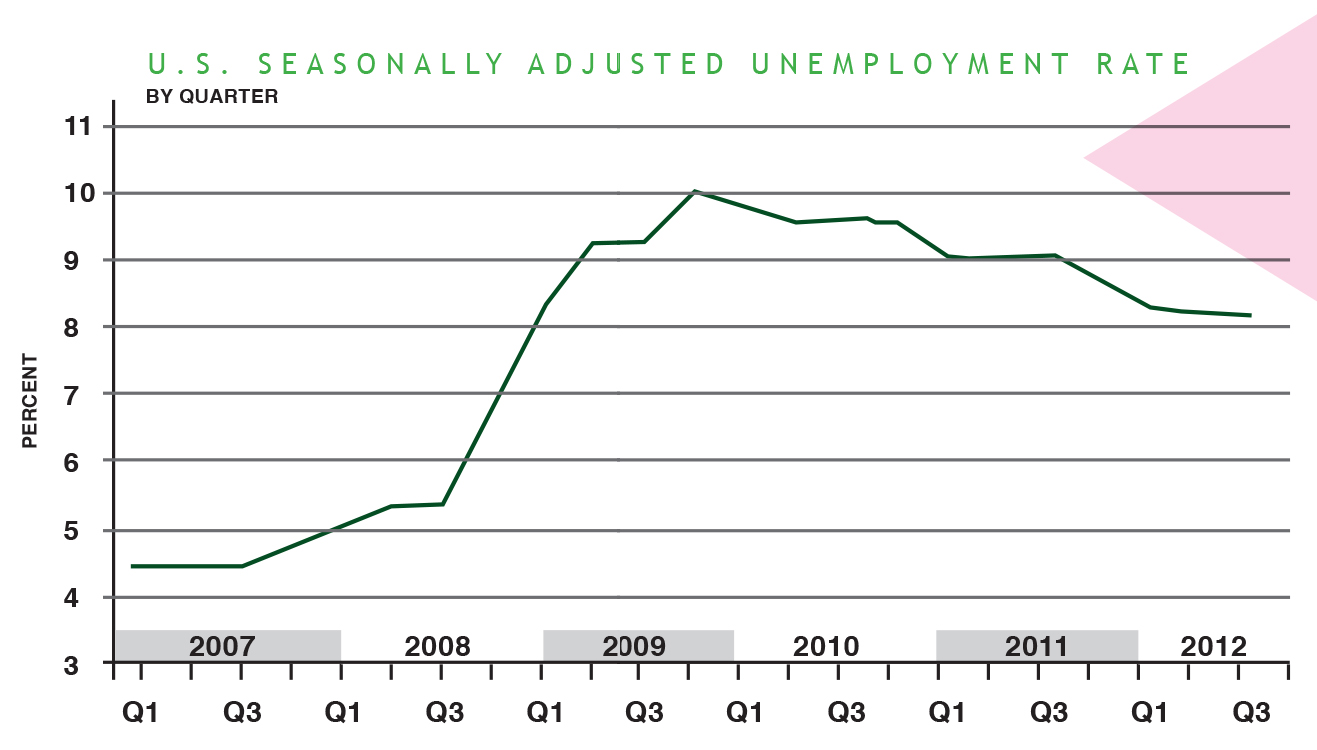The economy has dominated the political debate again. Like every year, both candidates will have to convince the nation that their policies are crucial to lifting the country out of anemic job growth, balancing the budget and achieving long term fiscal sustainability. Especially during an era when many parts of the world have undergone severe economic deterioration, President Obama and Gov. Mitt Romney will need to work to restore the United States as an economic powerhouse.
What the experts say
David Backus, Heinz Riehl professor of economics at the Stern School of Business
Ken Goldstein, Senior analyst at the New York Conference Board
Brian Hamilton, CEO of Sageworks, Inc.
Q: Why has job creation been so slow?
Backus: If you look at the numbers, GDP and consumption are now above where they were [in 2007]. But investments by companies are still down. What are companies doing? Sitting on cash. They could be building new plants, but they are not. The answer? We don’t know.
Hamilton: There is real anxiety among these companies about their business in the future. We found that 60 percent of the 27 million private businesses are worried about what is going to happen in the future or have lagging effects from the recession.
Q: What is needed from the government?
Hamilton: Better political decision-making. I would rather have a marginal to slightly poor policy early than something that’s debated until the very end and then thrown at people. [Companies] need to know what policies are coming down the pipe so they can plan.
Goldstein: Fiscal policies are more effective than monetary policy, but they haven’t come because of the political gridlock.
Q: What do you predict for the near future? Will the United States maintain its position as an economic powerhouse?
Backus: The U.S. has a 200-year history of eventually solving its problems. The big issue is if people on a large scale would start doubting the U.S. as a safe investment. But the chances are slim, what else [is] there? Europe? China?
Goldstein: In the next decade China moves from a developing economy to developed. They won’t see 10 percent growth in 2020. While that’s happening the U.S. [is] climbing. We will climb faster than Europe will. I think that most of our problems are either with us or behind us, not ahead of us.
A version of this article appeared in the Friday, Oct. 26 print edition. Anders Melin is a contributing writer. Email him at [email protected].























































































































































